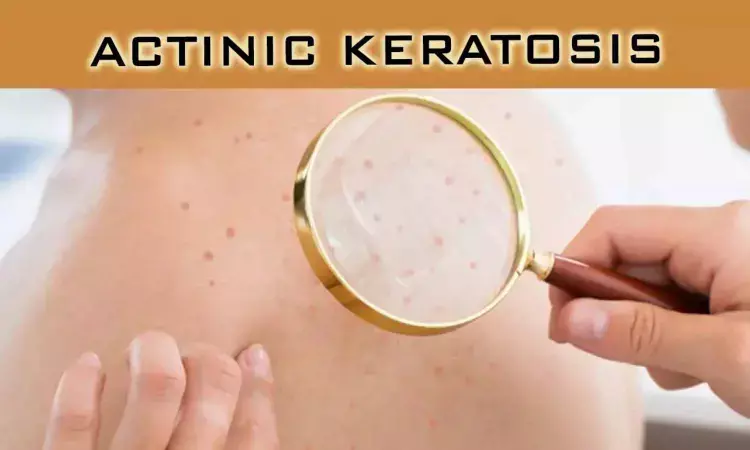- Home
- Medical news & Guidelines
- Anesthesiology
- Cardiology and CTVS
- Critical Care
- Dentistry
- Dermatology
- Diabetes and Endocrinology
- ENT
- Gastroenterology
- Medicine
- Nephrology
- Neurology
- Obstretics-Gynaecology
- Oncology
- Ophthalmology
- Orthopaedics
- Pediatrics-Neonatology
- Psychiatry
- Pulmonology
- Radiology
- Surgery
- Urology
- Laboratory Medicine
- Diet
- Nursing
- Paramedical
- Physiotherapy
- Health news
- Fact Check
- Bone Health Fact Check
- Brain Health Fact Check
- Cancer Related Fact Check
- Child Care Fact Check
- Dental and oral health fact check
- Diabetes and metabolic health fact check
- Diet and Nutrition Fact Check
- Eye and ENT Care Fact Check
- Fitness fact check
- Gut health fact check
- Heart health fact check
- Kidney health fact check
- Medical education fact check
- Men's health fact check
- Respiratory fact check
- Skin and hair care fact check
- Vaccine and Immunization fact check
- Women's health fact check
- AYUSH
- State News
- Andaman and Nicobar Islands
- Andhra Pradesh
- Arunachal Pradesh
- Assam
- Bihar
- Chandigarh
- Chattisgarh
- Dadra and Nagar Haveli
- Daman and Diu
- Delhi
- Goa
- Gujarat
- Haryana
- Himachal Pradesh
- Jammu & Kashmir
- Jharkhand
- Karnataka
- Kerala
- Ladakh
- Lakshadweep
- Madhya Pradesh
- Maharashtra
- Manipur
- Meghalaya
- Mizoram
- Nagaland
- Odisha
- Puducherry
- Punjab
- Rajasthan
- Sikkim
- Tamil Nadu
- Telangana
- Tripura
- Uttar Pradesh
- Uttrakhand
- West Bengal
- Medical Education
- Industry
Bimiralisib Gel Shows Strong Efficacy for Early-Stage Actinic Keratosis in Phase 2 trial

In phase 2 results, bimiralisib gel 2% demonstrated high efficacy and tolerability in treating actinic keratosis, achieving a 92% response rate in Olsen grade 1 lesions. The gel targets the PI3K/mTOR pathway, offering a novel, mechanism-based approach for managing early-stage skin lesions.
The randomized, multi-center study evaluated topical bimiralisib gel as a field-directed treatment for AK on the face, scalp, and/or back of hands. Results demonstrated substantial efficacy and a favorable safety profile, supporting further clinical development:
- Efficacy: 92% of complete or near complete response with Olsen grade 1 patients, and overall, 52% of patients in the 2-week period and 71% in the 4-week period achieved an Investigator’s Global Assessment (IGA) score of 0–1 (complete or partial clearance). All patients experienced some degree of lesion clearance after the initial treatment period. Clearance was seen in Olsen grade 1 and grade 2 AK lesions. Subanalysis showed that patients with Olsen grade 2 also had significant clearance with 48% complete or near complete response.
- Safety: Treatment was well tolerated, with related adverse events being generally local skin reactions with the vast majority being mild (only four grade 2 events), all resolving without intervention. Retreatment during the optional extension phase for up to 8 weeks was feasible without any significant or new safety concerns. Further improvements of lesions were noted with additional cases of complete clearance.
- The Phase 2 study enrolled 46 patients across two leading Swiss dermatology centers: University Hospital Basel (Prof. A. Navarini) and Lausanne University Hospital (Prof. O. Gaide).
Dr. Vladimir Cmiljanovic, CEO of Torqur AG, said: “Presenting these Phase 2 results at Europe’s most prestigious dermatology congress is a tremendous milestone. The high rates of clearance and consistently favorable tolerability profile underscore bimiralisib’s potential to become a new standard for patients with actinic keratosis. We are now preparing for the pivotal Phase 3 clinical trials and discussing with potential partners to bring this therapy closer to patients worldwide.”
Prof. Dr. Alexander Navarini, Chairman of Dermatology at University Hospital Basel and Lead Principal Investigator, commented: “These results show that bimiralisib gel 2% has both efficacy and safety across different grades of actinic keratosis. This represents a promising new non-invasive option for patients, addressing a significant unmet need in dermatology.”
Prof. Dr. Olivier Gaide, Head of the Center of Excellence for Skin Cancer and Melanoma at Lausanne University Hospital and Principal Investigator, added: “With actinic keratosis being the most common precancerous skin condition, these data highlight the great potential of this targeted topical therapy to counter progression to squamous cell carcinoma.”
Actinic keratosis affects more than 10% of Europeans and is considered the most common pre-cancerous dermatological condition driven by an overactive PI3K/mTOR pathway. Bimiralisib gel is a selective pan-PI3K/mTOR inhibitor and offers a new mechanism-based approach to treat early-stage skin lesions effectively and safely.
Dr Kamal Kant Kohli-MBBS, DTCD- a chest specialist with more than 30 years of practice and a flair for writing clinical articles, Dr Kamal Kant Kohli joined Medical Dialogues as a Chief Editor of Medical News. Besides writing articles, as an editor, he proofreads and verifies all the medical content published on Medical Dialogues including those coming from journals, studies,medical conferences,guidelines etc. Email: drkohli@medicaldialogues.in. Contact no. 011-43720751


